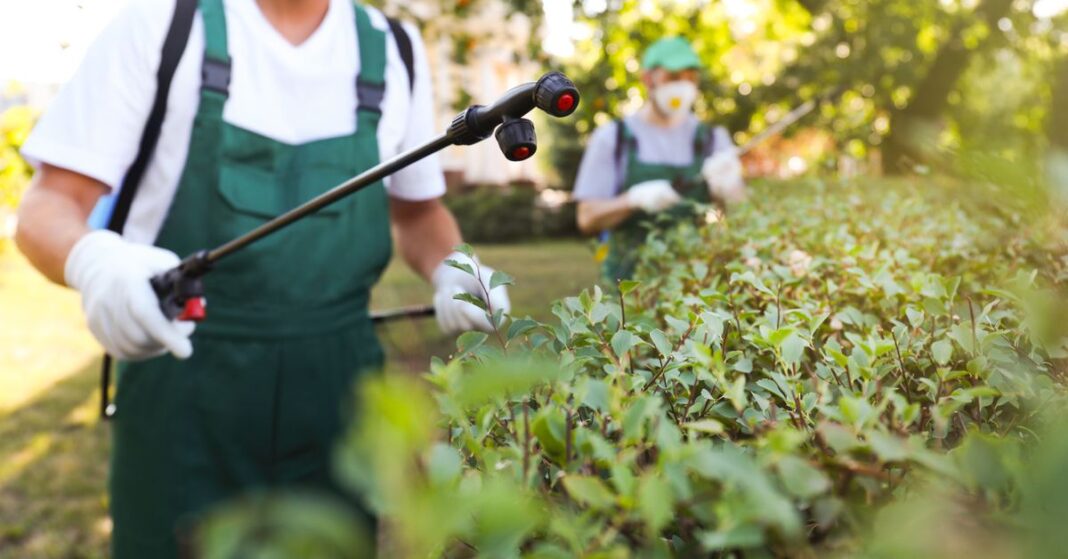Pest Management Safety and Sustainability in Saudi Arabia, is very important in Saudi Arabia. As cities grow and the climate gets warmer, pests like termites, cockroaches, and ants are becoming more common. Many people have used strong chemical pesticides to deal with these pests. This is why many are now interested in eco-friendly pest management methods. These methods help protect our homes and the environment. In this article, we will look at what eco-friendly pest management is, why it’s important, effective strategies, and the benefits it brings to Saudi Arabia.
The Pest Control Problem
Saudi Arabia has a hot and dry climate that can be good for pests. These pests can cause damage to buildings and can spread diseases that make people sick. As more people move to cities like Riyadh and Jeddah, the number of buildings increases, which gives pests more places to live.
Using traditional pest control in Saudi Arabia methods often means using harsh chemicals that can harm our health and the environment.
What Is Eco-Friendly Pest Management?
Eco-friendly pest management means controlling pests in ways that do not harm the environment or human health. This approach focuses on using natural solutions instead of chemical pesticides. The goal is to manage pest populations effectively while keeping our homes and environment safe.
1. Integrated Pest Management (IPM)
Integrated Pest Management (IPM) is one effective way to manage pests in an eco-friendly way. Here are the main parts of IPM:
- Monitoring:
This means regularly checking for signs of pests. By watching for pests early on, homeowners can take action before the problem gets worse. - Prevention:
Preventing pest problems is key. Keeping homes clean, sealing up cracks, and removing standing water can make it harder for pests to thrive. For example, putting garbage in sealed bins and keeping outdoor areas clean can help. - Cultural Practices:
Changing gardening habits can help stop pests from appearing. This includes planting plants that are less attractive to pests and keeping the soil healthy. - Biological Control:
This method uses natural predators, like birds and insects, to control pests. This method helps create a balanced ecosystem and reduces the need for chemicals.
2. Biological Control Methods
Biological control is an important part of eco-friendly pest management. It uses living organisms to manage pest populations. Here are some methods:
- Natural Predators:
Encouraging natural predators like birds and beneficial insects can help control pests. Attracting birds to your garden can reduce harmful insect populations. - Microbial Insecticides:
Certain bacteria can be used to target specific pests. For example, Bacillus thuringiensis (Bt) is a natural bacterium that can kill caterpillars.
3. Organic Pesticides
Organic pesticides break down easily and are less harmful to the environment. Here are some examples:
- Neem Oil:
This oil comes from the neem tree and can help repel various pests. - Insecticidal Soap:
Made from natural ingredients, this soap can kill soft-bodied pests like aphids. - Diatomaceous Earth:
This powder comes from fossilized algae and can be used to control pests by damaging their bodies.
4. Cultural Practices and Habitat Modification
Cultural practices can greatly reduce pest problems. Changing the environment can make it less inviting for pests. Here are some effective practices:
- Proper Waste Management:
Keeping trash sealed and disposing of waste regularly can prevent pests from finding food. Composting can attract helpful insects that control pests. - Landscaping Choices:
Using native plants can reduce the need for chemicals, as these plants are often more resistant to local pests. - Water Management:
Managing standing water in gardens can reduce mosquito populations. Ensuring proper drainage and using plants that repel mosquitoes can help.
Benefits of Eco-Friendly Pest Management
Switching to eco-friendly pest management practices has many advantages for people and communities. Here are some key benefits:
1. Health and Safety
Eco-friendly pest management keeps people and pets safe. By using fewer harmful chemicals, families can create safer homes, especially for children and pets.
2. Environmental Protection
Traditional pest control in Saudi Arabia methods can harm soil and water, affecting local ecosystems. Eco-friendly practices help protect nature and keep it healthy.
3. Long-Term Sustainability
Using sustainable pest management practices helps prevent pests from becoming resistant to chemicals.
4. Community Awareness and Involvement
Eco-friendly pest management encourages communities to work together and learn about environmental issues. Educating people about sustainable practices can lead to healthier neighborhoods.
Future Directions for Eco-Friendly Pest Management
As Saudi Arabia faces more pest control in Saudi Arabia challenges, eco-friendly pest management provides a safe and sustainable solution. Here are some future directions to improve these practices:
1. Research and Development
Investing in research can lead to new biological control agents and organic pesticides that are safe and effective. Partnerships between universities and government agencies can promote innovation in pest control.
2. Public Awareness Campaigns
Raising public awareness about eco-friendly pest management is important. Educational campaigns can help people understand the risks of chemical pesticides and the benefits of sustainable practices.
3. Legislation and Regulation
Governments can help promote eco-friendly pest management through rules and regulations. Stricter controls on harmful pesticides can encourage the use of safer options.
4. Technology Integration
New technology can improve eco-friendly pest management. Drones can monitor pest populations, providing real-time data. Mobile apps can help homeowners identify pests and suggest eco-friendly solutions.
5. Community Involvement
Getting communities involved is key to successful eco-friendly pest management. Neighborhood groups can share resources and information about sustainable practices. This teamwork can strengthen community bonds and improve pest management efforts.
More blogs
Final Word!
As pest control in Saudi Arabia challenges grow into Saudi Arabia, eco-friendly pest management offers a promising solution.
Switching to eco-friendly methods is essential for creating a safer living environment. By working together and embracing sustainable practices, we can create a healthier and more sustainable future for pest management in Saudi Arabia. This way, we can ensure a safer environment for ourselves and generations to come.

